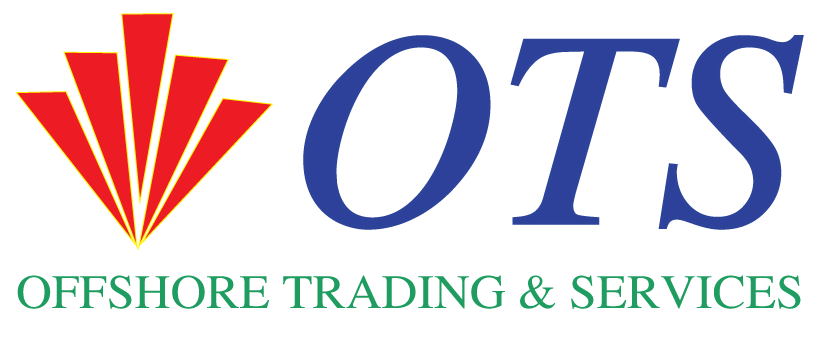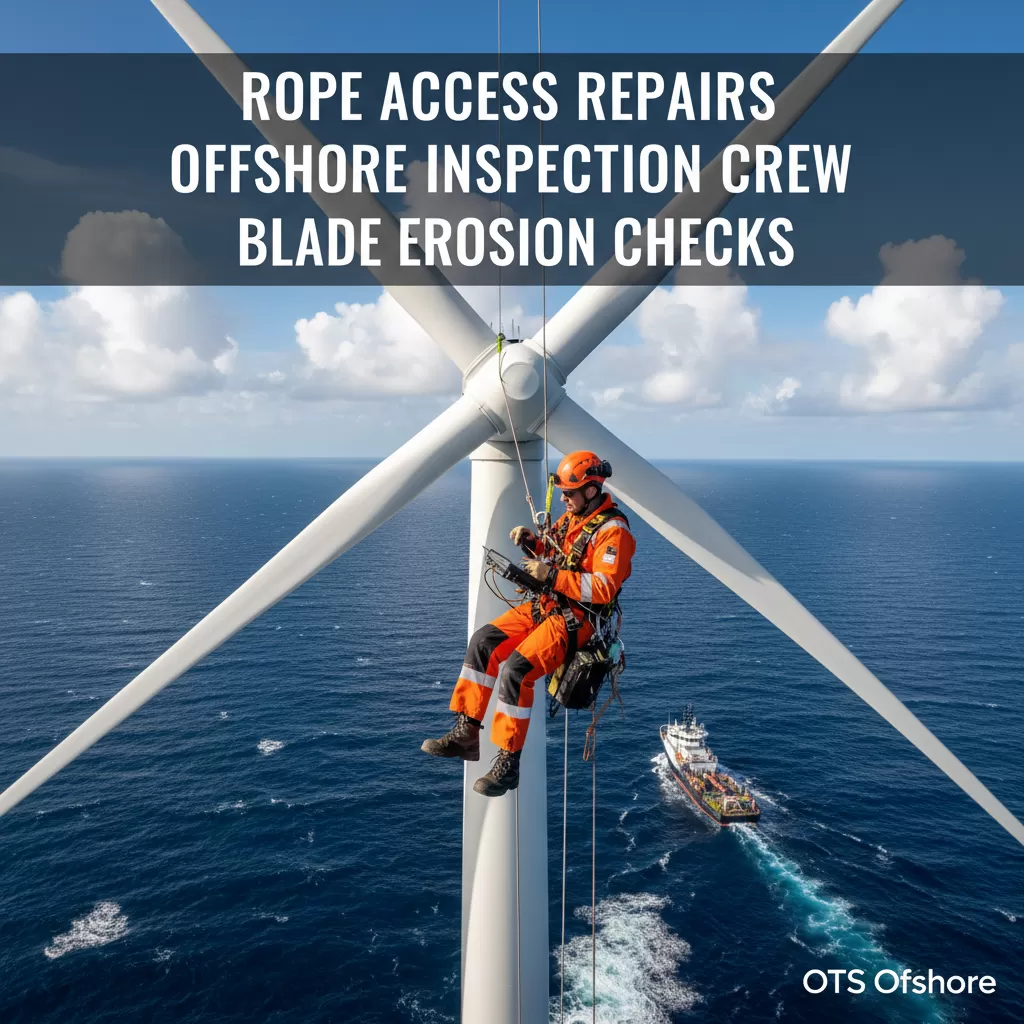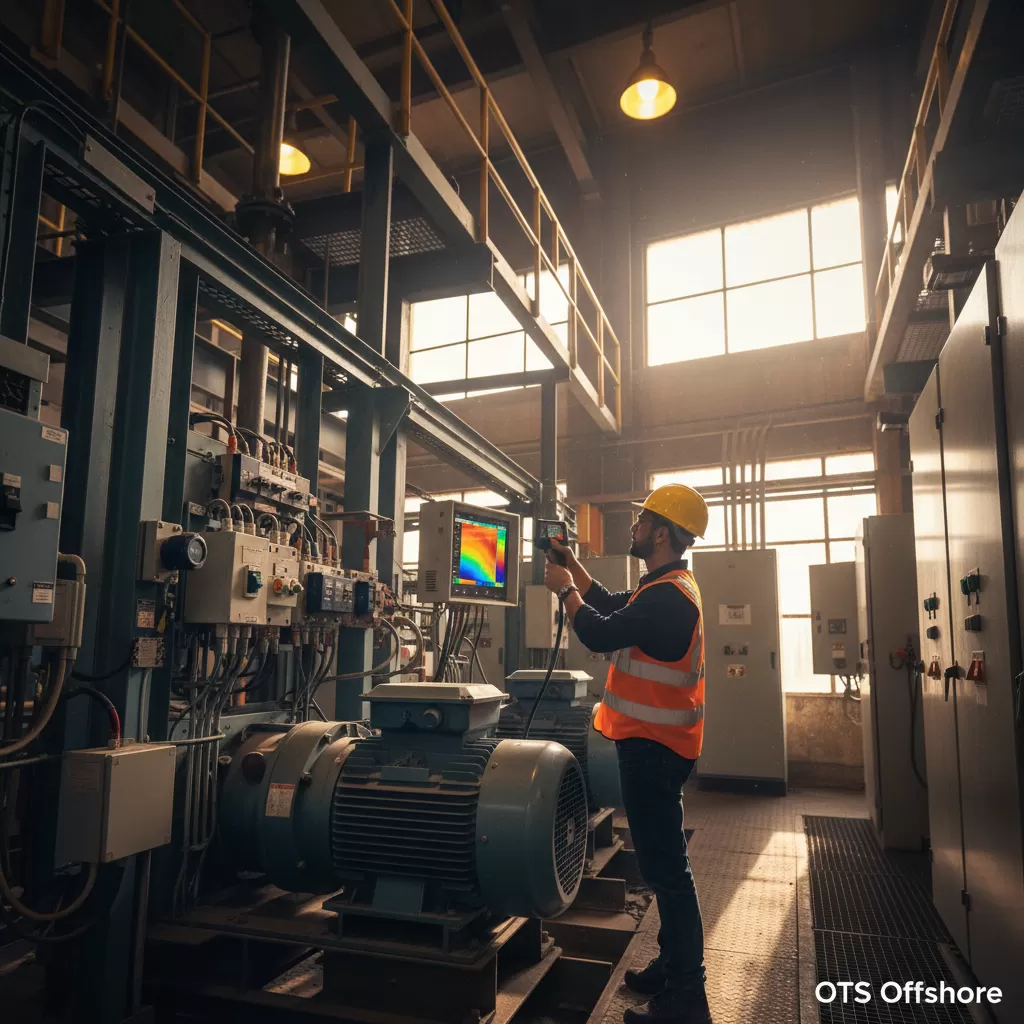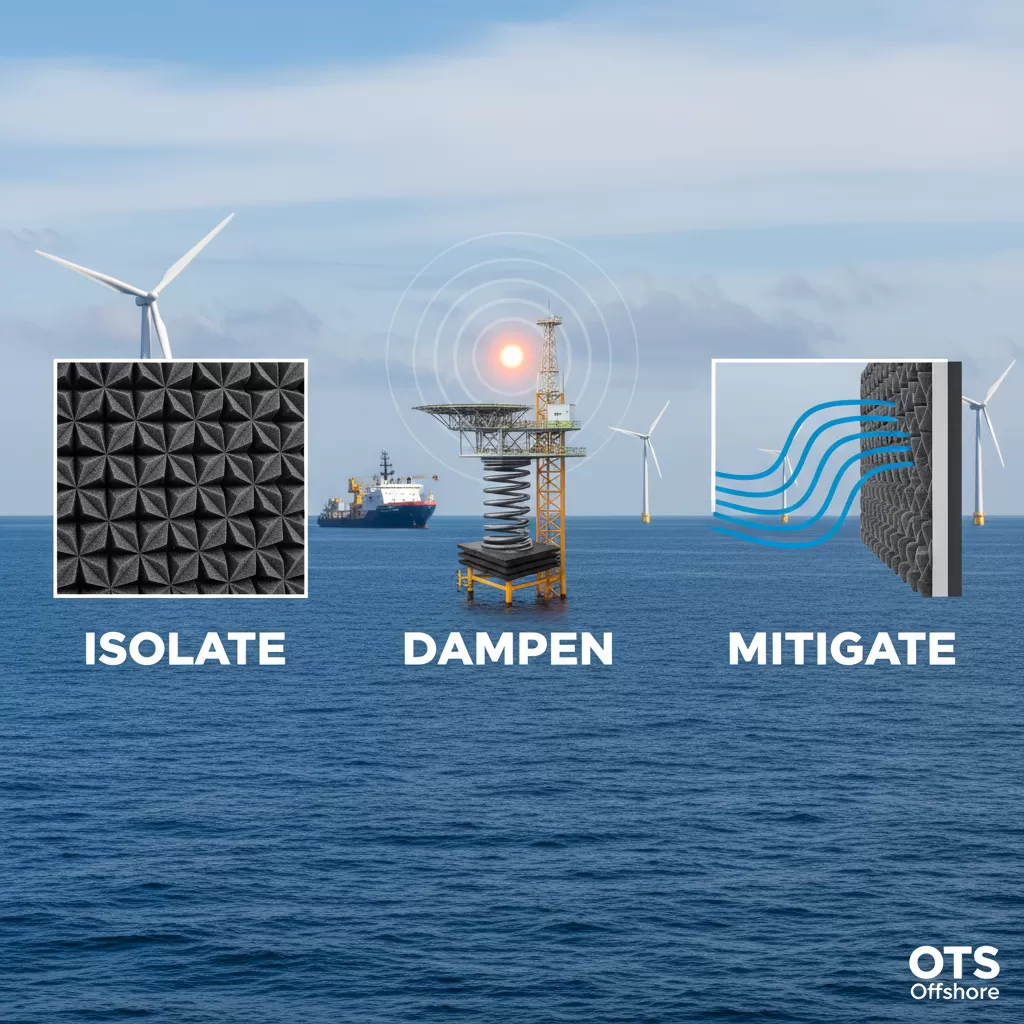AITECH Internal Certification outlines the rigorous framework governing the qualification and continuous development of personnel within AITECH’s specialized operations, particularly in Non-Destructive Testing (NDT). This procedure ensures adherence to industry best practices and mandates a high standard of competence for all certified individuals, fostering safety and reliability across projects.
The Comprehensive AITECH Internal Certification Procedure (AITECH-NDT-WP-001)
The AITECH Internal Certification procedure, specifically documented as AITECH-NDT-WP-001, represents a cornerstone of AITECH’s commitment to operational excellence and personnel competency. This meticulously crafted document establishes the stringent requirements and pathways for individuals to achieve and maintain internal certification, particularly within the critical domain of Non-Destructive Testing (NDT). For any organization operating in sectors where integrity and safety are paramount, such as oil and gas, petrochemical, and heavy manufacturing, a robust internal certification process is not merely a procedural formality but a vital mechanism for risk mitigation and quality assurance. The AITECH-NDT-WP-001 serves as the definitive guide, detailing every facet of the certification lifecycle, from initial eligibility and training to examination, recertification, and the potential for decertification. Its overarching objective is to ensure that every certified professional possesses the requisite knowledge, skills, and ethical understanding to perform their duties effectively and safely, thereby safeguarding both personnel and assets. Understanding and implementing the AITECH Internal Certification procedure is therefore essential for maintaining AITECH’s reputation for reliability and for meeting the demanding standards of the energy sector.
Understanding the Core Principles of AITECH Internal Certification
At its heart, the AITECH Internal Certification procedure is built upon a foundation of fundamental principles designed to guarantee a high level of competence and accountability. These principles are not static but evolve to reflect advancements in technology, evolving industry standards, and lessons learned from operational experiences. Central to this is the principle of continuous improvement, ensuring that the certification process itself remains relevant and effective.
The Importance of a Structured Approach
A structured approach is non-negotiable when it comes to certifying personnel who will be responsible for critical inspection and testing tasks. The AITECH Internal Certification procedure meticulously outlines each step, leaving no room for ambiguity. This structured framework ensures consistency across all certifications, irrespective of the individual or the specific NDT method being applied. It provides a clear roadmap for candidates, detailing the prerequisites, training modules, experience requirements, and examination formats they must successfully navigate. Without this inherent structure, the reliability and comparability of certifications would be severely compromised, undermining the very purpose of the process. This methodical approach also facilitates auditing and continuous quality monitoring of the certification program itself.
Ensuring Competency and Proficiency
The ultimate goal of the AITECH Internal Certification procedure is to assure that certified individuals are not just knowledgeable but also demonstrably proficient in their chosen NDT methods. This goes beyond theoretical understanding; it encompasses practical application, interpretation of results, and the ability to make sound judgments under real-world conditions. AITECH achieves this through a combination of verified training programs, mandatory practical experience under qualified supervision, and rigorous examinations that often include hands-on components. Proficiency is a dynamic state, and the procedure accounts for this by mandating periodic recertification and the accumulation of ongoing experience to prevent skill degradation. The AITECH Internal Certification process, therefore, is a testament to the company’s dedication to maintaining an exceptionally skilled workforce.
Maintaining Industry Standards and Best Practices
The energy sector, and particularly the oil and gas industry, operates under some of the most stringent safety and quality regulations globally. The AITECH Internal Certification procedure is developed and maintained in close alignment with these external standards, such as those set by ISO, API, ASME, and other relevant bodies. By embedding these industry best practices into its internal certification framework, AITECH ensures that its personnel are not only qualified by company standards but also recognized and respected within the wider industry. This alignment is crucial for project acceptance, regulatory compliance, and maintaining AITECH’s credibility as a trusted service provider. The procedure acts as a proactive measure to embed a culture of compliance and excellence.

Key Stages in the AITECH Internal Certification Procedure
The AITECH Internal Certification procedure, AITECH-NDT-WP-001, details a multi-stage process designed to thoroughly assess and validate an individual’s capabilities. Each stage serves a distinct purpose in building a comprehensive profile of the candidate’s readiness for certification.
Eligibility and Application Requirements
The journey towards AITECH Internal Certification begins with clearly defined eligibility criteria. These are designed to ensure that only individuals with the foundational academic qualifications and the appropriate aptitude can enter the certification pathway. This typically involves specific educational backgrounds, such as a high school diploma or equivalent, and potentially specialized technical training. The application process itself requires thorough documentation, including proof of education, work experience records, and sometimes medical declarations to ensure fitness for specific NDT environments. The AITECH Internal Certification application phase sets the initial bar for commitment and seriousness.
Approved Training Programs and Content
AITECH places significant emphasis on the quality and relevance of training. The AITECH Internal Certification procedure mandates that all candidates undergo training through AITECH-approved programs. These programs are meticulously designed to cover theoretical knowledge, practical skills, and safety protocols specific to each NDT method. The curriculum is regularly reviewed and updated to incorporate the latest technological advancements, industry changes, and emerging best practices. Content typically includes detailed explanations of NDT principles, equipment operation, procedure implementation, data interpretation, reporting, and relevant codes and standards. The AITECH Internal Certification is intrinsically linked to these high-quality training experiences.
Mandatory Experience Accumulation
Theoretical knowledge is only one part of the equation. The AITECH Internal Certification procedure recognizes that practical, hands-on experience is indispensable for developing true competence. Candidates are required to accumulate a specified number of hours or months of supervised experience in their chosen NDT method(s). This experience must be documented and verified, often involving work on actual projects under the guidance of certified senior personnel. The duration and nature of this experience are tailored to the complexity and criticality of the NDT method, ensuring sufficient exposure to a wide range of scenarios and potential challenges. This experiential component is a critical differentiator for AITECH Internal Certification.
Comprehensive Examination and Assessment
The culmination of the training and experience phases is the rigorous examination process. The AITECH Internal Certification procedure outlines a multi-part examination designed to assess both theoretical knowledge and practical application skills. This typically includes:
– General Theory Examination: Testing understanding of NDT principles, materials science, and relevant codes.
– Specific Theory Examination: Focusing on the application of NDT methods to specific materials, product forms, and industry requirements.
– Practical Examination: Evaluating the candidate’s ability to perform NDT tasks, interpret results, and report findings using approved procedures and equipment.
The passing score for each component is clearly defined, and candidates must achieve the required standard in all parts to be granted certification. The AITECH Internal Certification is awarded only after successfully clearing these comprehensive evaluations.
Certification Issuance and Record Keeping
Upon successful completion of all examination requirements, candidates are formally issued an AITECH Internal Certification. This certification is typically accompanied by a certificate detailing the NDT method(s), level of certification, and validity period. AITECH maintains a centralized and secure database of all certified personnel, ensuring that records are accurate, up-to-date, and readily accessible for verification. This robust record-keeping system is crucial for internal quality control, project management, and client assurance. The AITECH Internal Certification is a valuable credential, and its issuance is a carefully managed process.
Levels of AITECH Internal Certification
The AITECH Internal Certification procedure adopts a multi-level approach to cater to the progressive development of NDT personnel. This tiered structure allows individuals to advance their careers and responsibilities as their skills and experience grow, ensuring that the complexity of tasks assigned matches the individual’s demonstrated competence.
Level I Certification
Level I certification represents the foundational stage for an NDT professional. At this level, individuals are qualified to perform NDT operations under the direction of Level II or Level III personnel. They possess a basic understanding of the NDT method and can operate the equipment, calibrate it according to established procedures, and visually inspect for obvious defects. Their role is primarily execution-focused, with limited responsibility for interpreting results or determining the acceptability of indications. The AITECH Internal Certification at Level I signifies an individual’s readiness to begin practical application.
Level II Certification
Level II certification signifies a higher degree of competency. Individuals at this level are capable of selecting the appropriate NDT method, establishing the techniques for testing, and interpreting and evaluating results in accordance with applicable codes, standards, and specifications. They can supervise Level I personnel and are often responsible for reporting the findings of NDT inspections. Level II technicians possess a more in-depth understanding of NDT principles, equipment, and the behavior of discontinuities in various materials. Achieving AITECH Internal Certification at Level II demonstrates a significant step up in independent capability.
Level III Certification
Level III certification represents the highest level of technical expertise within the AITECH Internal Certification framework for NDT personnel. Individuals at this level are responsible for establishing, administering, and overseeing NDT procedures and programs. They are typically involved in the development of NDT techniques, qualification of NDT personnel, interpretation of codes and standards, and consultation on NDT-related matters. Level III personnel are the subject matter experts, possessing a comprehensive knowledge of multiple NDT methods, metallurgy, materials science, and manufacturing processes. Their role is strategic, ensuring that AITECH’s NDT capabilities meet the highest industry benchmarks.

Recertification and Continuous Professional Development
The dynamic nature of the energy sector and advancements in NDT technology necessitate a commitment to ongoing learning and skill maintenance. The AITECH Internal Certification procedure incorporates robust mechanisms for recertification and continuous professional development.
The Recertification Cycle
AITECH Internal Certifications are not permanent. They are issued for a defined period, typically several years, after which recertification is required. This recertification process ensures that certified individuals remain up-to-date with the latest industry developments, technological innovations, and changes in codes and standards. The recertification procedure typically involves demonstrating continued experience, potentially undergoing refresher training, and passing a recertification examination. This ensures that the AITECH Internal Certification remains a current and valid indicator of competence.
Ongoing Training and Skill Enhancement
Beyond the formal recertification process, AITECH encourages and often mandates ongoing training and skill enhancement for its certified personnel. This can include specialized courses on new NDT techniques, advanced interpretation skills, specific industry applications, or emerging technologies. Participating in workshops, seminars, and technical conferences also contributes to professional development. This commitment to continuous learning ensures that AITECH’s NDT workforce remains at the forefront of the industry, equipped to handle increasingly complex challenges. The AITECH Internal Certification process is designed to foster a culture of lifelong learning.
Performance Monitoring and Auditing
The AITECH Internal Certification procedure includes mechanisms for ongoing performance monitoring and auditing. This involves regular reviews of work quality, adherence to procedures, and safety compliance. Audits may be conducted by internal quality assurance teams or by external bodies, depending on project requirements and regulatory mandates. This oversight helps to identify any areas where an individual’s performance may be falling short, allowing for timely intervention, additional training, or, in severe cases, decertification. The AITECH Internal Certification is upheld through diligent monitoring.
Decertification and Appeals Process
In cases where an individual consistently fails to meet the required standards, violates company policies, or demonstrates gross negligence, the AITECH Internal Certification procedure outlines a formal decertification process. This process is conducted fairly and impartially, with opportunities for the individual to present their case or appeal the decision. Decertification is a serious measure, reserved for situations where an individual’s continued certification would pose a significant risk to safety or operational integrity. The AITECH Internal Certification demands a high level of commitment to ethical conduct and performance.
The Role of AITECH Internal Certification in Project Success
The implementation of the AITECH Internal Certification procedure is directly linked to the successful execution of projects across the energy sector. It underpins the reliability, safety, and efficiency of AITECH’s operations.
Ensuring Quality and Integrity of Assets
Non-Destructive Testing is fundamental to ensuring the integrity of critical assets in the oil and gas industry, such as pipelines, pressure vessels, and structural components. Personnel certified under the AITECH Internal Certification procedure possess the skills to detect flaws and defects that could lead to catastrophic failures. By ensuring that only competent individuals perform these vital inspections, AITECH safeguards the quality and longevity of client assets, preventing costly downtime and potential safety hazards. The AITECH Internal Certification is a direct contributor to asset integrity management.
Enhancing Safety and Reducing Risk
A primary objective of NDT is to identify potential hazards before they manifest into accidents. Certified NDT technicians, operating under the rigorous standards of the AITECH Internal Certification procedure, play a crucial role in risk mitigation. Their accurate identification of flaws prevents the operation of equipment or structures that could be unsafe, thereby protecting personnel, the environment, and the public. A skilled and certified NDT workforce is an indispensable element of a robust safety culture. The AITECH Internal Certification is intrinsically tied to risk reduction.
Meeting Client and Regulatory Requirements
Clients in the oil and gas sector often have stringent requirements for the qualifications and certifications of personnel involved in inspection activities. Similarly, regulatory bodies impose specific mandates on NDT practices and the competency of inspectors. The AITECH Internal Certification procedure ensures that AITECH’s personnel meet or exceed these demanding requirements, facilitating project approvals, audits, and overall client satisfaction. A recognized AITECH Internal Certification provides assurance of competence to stakeholders.
Driving Operational Efficiency and Cost-Effectiveness
While the AITECH Internal Certification procedure involves significant investment in training and assessment, it ultimately drives operational efficiency and cost-effectiveness. By employing highly competent NDT professionals, AITECH reduces the likelihood of re-work due to faulty inspections, minimizes equipment downtime caused by undetected defects, and prevents the costs associated with failures and accidents. A robust certification program is a proactive investment that yields substantial returns in terms of operational performance and long-term value. The AITECH Internal Certification is a strategic enabler of efficiency.
Fostering a Culture of Professionalism and Expertise
The existence of a well-defined and diligently applied AITECH Internal Certification procedure fosters a strong culture of professionalism, accountability, and expertise within the company. It signals to employees that AITECH values their development and is committed to maintaining the highest standards in its operations. This, in turn, attracts and retains skilled professionals, creating a virtuous cycle of excellence. The AITECH Internal Certification becomes a mark of distinction for AITECH personnel.








